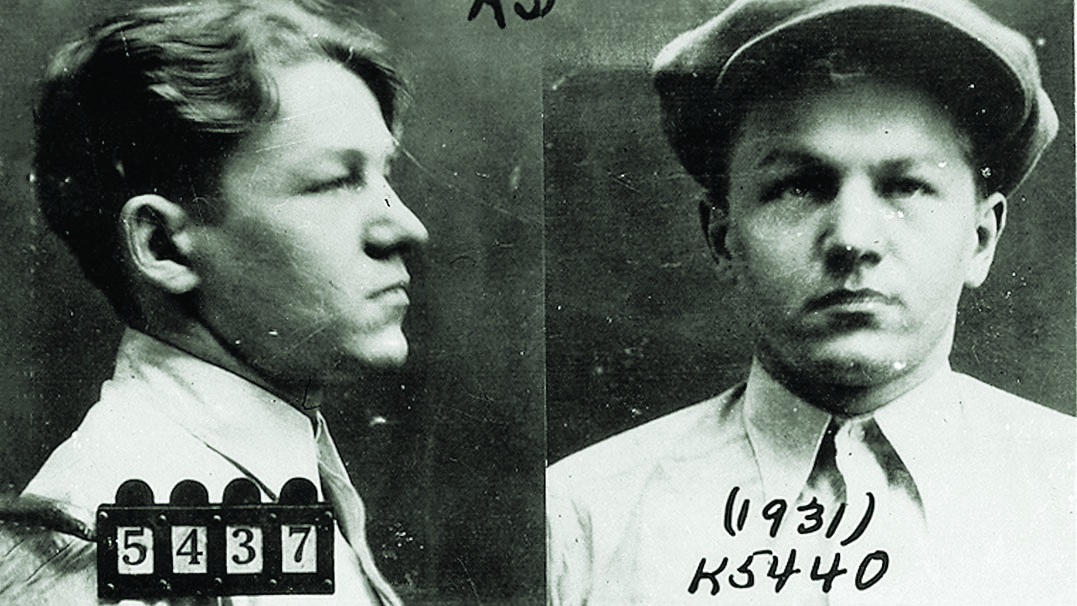On Sunday evening April 22, 1934, gangster Lester J. Gillis, better known by the alias George “Baby Face” Nelson, was fleeing a federal raid on a gangland hideout in Manitowish Waters, Wisconsin, when he shot and killed federal agent W. Carter Baum.
The killer left a .38-caliber Colt pistol converted to fully automatic fire and fitted with an extended magazine. Using the Colt’s serial number, agents of the briefly renamed federal Division of Investigation traced the .38 from the Colt armory in Hartford, Connecticut, to a Fort Worth, Texas, weapons wholesaler who had sold the weapon to a San Antonio gunsmith, Hyman S. Lebman.
Lebman, 30, owned a saddlery and used gun shop on Flores Street. On the sly he converted Colt .38s and .45s into machine guns. Standard Colt semi-automatics, with seven-round handgrip magazines, fired one slug per trigger pull. Lebman modified the mechanism and replaced the seven-round magazine with a 22-round clip that one of his guns would empty in seconds when a user held down its trigger. To dampen recoil, which jerked the barrel up, Lebman installed a foregrip and muzzle compensator. Lebman’s high-power hybrids, nearly a Thompson’s equal in lethality, were easily concealed. Lebman asked no questions of customers and kept no records of transactions.
Police immediately searched Lebman’s workshop, finding a Thompson with a defaced serial number and a partially modified pistol. Questioned on April 29, 1934, Lebman grudgingly acknowledged selling machine pistols, handguns, and Thompsons to Nelson. Lebman claimed to have known Nelson as “Jimmie Williams.” Federal agent Gus T. Jones, who interrogated Lebman, suspected the gunmaker knew more than he was saying. In a report to Director J. Edgar Hoover dated April 30, 1934, Jones called Lebman “without a doubt the biggest liar and unprincipled human that I have ever talked to.” Lebman told family members he thought his outlaw customers were “charming, wealthy oil men who were interested in guns,” his son recalled years later.
An early version of what was to become the National Firearms Act was in the Capitol Hill pipeline. The bill proposed requiring gun dealers to register with the government, to pay a $200 yearly tax, and to file regulatory paperwork. Violators risked five-year jail terms. The measure would outlaw removal of a gun’s serial number, with parties possessing defaced weapons presumed to have done the defacing.
However, without a statute to invoke, federal authorities could not touch Lebman, prompting Agent Jones to urge Congress to pass the pending firearms bill. Texas prosecuted Lebman under its 1933 ban on machine guns. Convicted under that statute in 1935, Lebman appealed and won. A 1936 re-trial ended in a hung jury, with jury-tampering suspected. Texas prosecutors refused to try Lebman a third time. He never served a day behind bars.
This story was originally published in the August 2021 issue of American History. To subscribe, click here.





